| Weight | 1 lbs |
|---|---|
| Dimensions | 9 × 5 × 2 in |
| host | mouse |
| isotype | IgG1 |
| clonality | monoclonal |
| concentration | 1 mg/mL |
| applications | ICC/IF, WB |
| reactivity | Cardiac Troponin T |
| available sizes | 100 µg |
mouse anti-Cardiac Tropinin T monoclonal antibody (1C11) 9482
$235.00
Antibody summary
- Mouse monoclonal to Cardiac Tropinin T
- Suitable for: ELISA
- Isotype: IgG1
- 100 µg
mouse anti-Cardiac Tropinin T monoclonal antibody (1C11) 9482
| antibody |
|---|
| Tested applications ELISA |
| Recommended dilutions These antibodies may be used in immunoassays to detect and quantitate human cardiac troponin T. They may also be used to affinity purify cardiac troponin T. |
| Immunogen Purified human cardiac troponin T. |
| Size and concentration 100µg and lot specific |
| Form liquid |
| Storage Instructions These antibodies are stable for at least one (1) year at -20°C to -70°C. Store product in appropriate aliquots to avoid multiple freeze-thaw cycles. |
| Storage buffer PBS containing 0.1% NaN3 |
| Purity protein affinity purification |
| Clonality monoclonal |
| Isotype IgG1 |
| Compatible secondaries goat anti-mouse IgG, H&L chain specific, peroxidase conjugated polyclonal antibody 5486 goat anti-mouse IgG, H&L chain specific, biotin conjugated, Conjugate polyclonal antibody 2685 goat anti-mouse IgG, H&L chain specific, FITC conjugated polyclonal antibody 7854 goat anti-mouse IgG, H&L chain specific, peroxidase conjugated polyclonal antibody, crossabsorbed 1706 goat anti-mouse IgG, H&L chain specific, biotin conjugated polyclonal antibody, crossabsorbed 1716 goat anti-mouse IgG, H&L chain specific, FITC conjugated polyclonal antibody, crossabsorbed 1721 |
| Isotype control Mouse monocolonal IgG1 - Isotype Control |
| target relevance |
|---|
| Protein names Troponin T, cardiac muscle (TnTc) (Cardiac muscle troponin T) (cTnT) |
| Gene names TNNT2,TNNT2 |
| Protein family Troponin T family |
| Mass 35924Da |
| Function FUNCTION: Troponin T is the tropomyosin-binding subunit of troponin, the thin filament regulatory complex which confers calcium-sensitivity to striated muscle actomyosin ATPase activity. |
| Tissues TISSUE SPECIFICITY: Heart. The fetal heart shows a greater expression in the atrium than in the ventricle, while the adult heart shows a greater expression in the ventricle than in the atrium. Isoform 6 predominates in normal adult heart. Isoforms 1, 7 and 8 are expressed in fetal heart. Isoform 7 is also expressed in failing adult heart. |
| Post-translational modification PTM: Phosphorylation at Thr-213 by PRKCA induces significant reduction in myofilament calcium sensitivity and actomyosin ATPase activity. {ECO:0000250}. |
| Involvement in disease DISEASE: Cardiomyopathy, familial hypertrophic, 2 (CMH2) [MIM:115195]: A hereditary heart disorder characterized by ventricular hypertrophy, which is usually asymmetric and often involves the interventricular septum. The symptoms include dyspnea, syncope, collapse, palpitations, and chest pain. They can be readily provoked by exercise. The disorder has inter- and intrafamilial variability ranging from benign to malignant forms with high risk of cardiac failure and sudden cardiac death. {ECO:0000269|PubMed:10525521, ECO:0000269|PubMed:11034944, ECO:0000269|PubMed:12707239, ECO:0000269|PubMed:12974739, ECO:0000269|PubMed:15563892, ECO:0000269|PubMed:16199542, ECO:0000269|PubMed:21846512, ECO:0000269|PubMed:7898523, ECO:0000269|PubMed:8205619, ECO:0000269|PubMed:8989109, ECO:0000269|PubMed:9060892, ECO:0000269|PubMed:9140840, ECO:0000269|PubMed:9482583, ECO:0000269|Ref.19}. Note=The disease is caused by variants affecting the gene represented in this entry.; DISEASE: Cardiomyopathy, dilated, 1D (CMD1D) [MIM:601494]: A disorder characterized by ventricular dilation and impaired systolic function, resulting in congestive heart failure and arrhythmia. Patients are at risk of premature death. {ECO:0000269|PubMed:11106718, ECO:0000269|PubMed:11684629, ECO:0000269|PubMed:15542288, ECO:0000269|PubMed:15769782, ECO:0000269|PubMed:21846512}. Note=The disease is caused by variants affecting the gene represented in this entry.; DISEASE: Cardiomyopathy, familial restrictive 3 (RCM3) [MIM:612422]: A heart disorder characterized by impaired filling of the ventricles with reduced diastolic volume, in the presence of normal or near normal wall thickness and systolic function. {ECO:0000269|PubMed:16651346}. Note=The disease is caused by variants affecting the gene represented in this entry. |
| Target Relevance information above includes information from UniProt accession: P45379 |
| The UniProt Consortium |
Data
| No results found |
Publications
| pmid | title | authors | citation |
|---|---|---|---|
| 36499727 | INO80 Is Required for the Cell Cycle Control, Survival, and Differentiation of Mouse ESCs by Transcriptional Regulation. | Seonho Yoo, Eun Joo Lee, Nguyen Xuan Thang, Hyeonwoo La, Hyeonji Lee, Chanhyeok Park, Dong Wook Han, Sang Jun Uhm, Hyuk Song, Jeong Tae Do, Youngsok Choi, Kwonho Hong | Int J Mol Sci 23:N/A |
| 36438566 | Immunosuppressants Tacrolimus and Sirolimus revert the cardiac antifibrotic properties of p38-MAPK inhibition in 3D-multicellular human iPSC-heart organoids. | Yu Tian, Yuta Tsujisaka, Vanessa Y Li, Kanae Tani, Antonio Lucena-Cacace, Yoshinori Yoshida | Front Cell Dev Biol 10:1001453 |
| 36335128 | Dusp6 deficiency attenuates neutrophil-mediated cardiac damage in the acute inflammatory phase of myocardial infarction. | Xiaohai Zhou, Chenyang Zhang, Xueying Wu, Xinli Hu, Yan Zhang, Xuelian Wang, Lixia Zheng, Peng Gao, Jianyong Du, Wen Zheng, Haibao Shang, Keping Hu, Zhengfan Jiang, Yu Nie, Shengshou Hu, Rui-Ping Xiao, Xiaojun Zhu, Jing-Wei Xiong | Nat Commun 13:6672 |
| 36147944 | A scalable and tunable thermoreversible polymer for 3D human pluripotent stem cell biomanufacturing. | Hunter J Johnson, Saheli Chakraborty, Riya J Muckom, Nitash P Balsara, David V Schaffer | iScience 25:104971 |
| 36082129 | CDK9 binds and activates SGK3 to promote cardiac repair after injury via the GSK-3β/β-catenin pathway. | Jiateng Sun, Tongtong Yang, Tianwen Wei, Liuhua Zhou, Tiankai Shan, Jiawen Chen, Lingfeng Gu, Bingrui Chen, Liu Liu, Qiqi Jiang, Chong Du, Yao Ma, Hao Wang, Feng Chen, Xuejiang Guo, Yong Ji, Liansheng Wang | Front Cardiovasc Med 9:970745 |
Protocols
| relevant to this product |
|---|
| ELISA |
Documents
| # | SDS | Certificate | |
|---|---|---|---|
| Please enter your product and batch number here to retrieve product datasheet, SDS, and QC information. | |||
Only logged in customers who have purchased this product may leave a review.
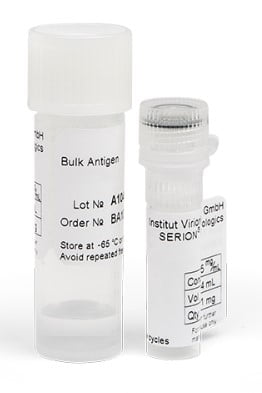
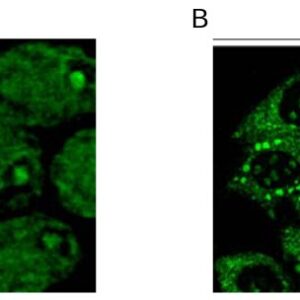
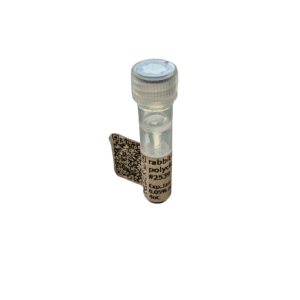
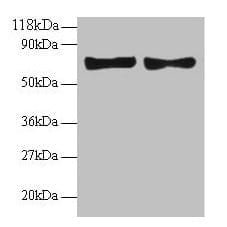
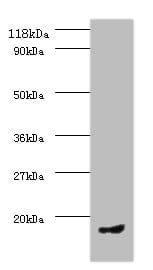

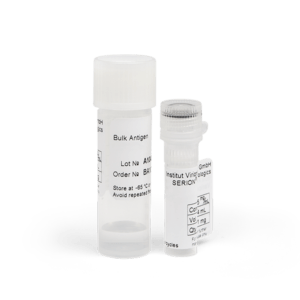
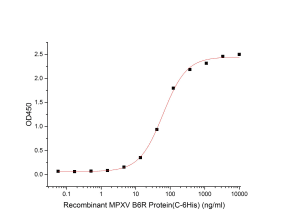
Reviews
There are no reviews yet.